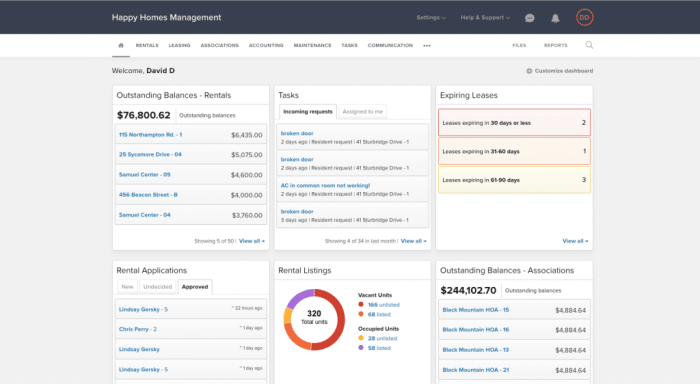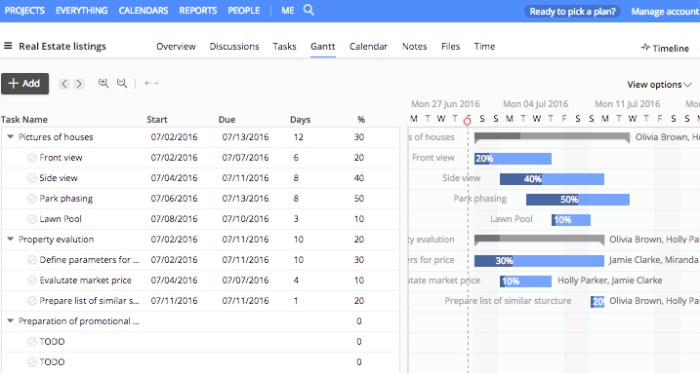Real estate development project management software offers a powerful toolkit for streamlining complex projects from initial concept to successful completion. It facilitates efficient communication, task allocation, and progress tracking, ultimately contributing to better project outcomes and profitability. These tools integrate seamlessly with various other aspects of the development process, enhancing overall efficiency.
The software’s comprehensive features cover every stage of the project, from initial planning and budgeting to construction and final handover. This detailed approach allows developers to effectively manage resources, track expenses, and ensure adherence to deadlines and budgets. Modern solutions often include robust reporting and analytics tools, providing clear visibility into project performance and enabling data-driven decision-making.
Real estate development projects are complex endeavors, requiring meticulous planning, tight scheduling, and seamless collaboration among various stakeholders. Effective project management is crucial for success, and dedicated software solutions are rapidly becoming essential tools for developers navigating the intricacies of the industry. This article explores the features, benefits, and considerations surrounding real estate development project management software.
Understanding the Need for Specialized Software
Traditional project management methods often fall short when applied to real estate development. The unique characteristics of these projects, including multiple stakeholders, fluctuating market conditions, and intricate legal processes, demand a more sophisticated approach. Project management software tailored for real estate development offers specialized features to streamline workflows, manage budgets, track progress, and maintain compliance.
Key Features of Real Estate Development Project Management Software
Effective real estate development project management software should incorporate several crucial features:
Task and Timeline Management
A robust system for assigning, tracking, and managing tasks is paramount. The software should allow for detailed task descriptions, deadlines, dependencies, and progress updates. This functionality enables developers to maintain a clear overview of project milestones and proactively address potential delays. Features for Gantt charts and critical path analysis are invaluable for visualizing timelines and identifying potential bottlenecks.
Budget and Financial Tracking
Accurate financial management is vital. The software should allow for detailed budgeting, expense tracking, and revenue projections. Real-time financial reporting is essential for making informed decisions and ensuring projects stay within budget. Integration with accounting software can further streamline financial processes.
Communication and Collaboration Tools
Effective communication is key to successful real estate development projects. The software should facilitate seamless communication between developers, contractors, investors, and other stakeholders. Features such as integrated messaging, document sharing, and project forums are crucial for maintaining transparency and fostering collaboration. These tools help prevent miscommunication and maintain a clear record of decisions and agreements.

Source: spotsaas.com
Risk Management and Issue Tracking
Identifying and mitigating potential risks is critical. The software should allow for the identification, assessment, and tracking of potential risks and issues. This feature enables proactive planning and management of potential problems. Reporting and analysis tools help developers understand the impact of various risks and prioritize mitigation strategies.

Source: spotsaas.com
Document Management and Version Control
Managing project documents effectively is essential. The software should provide a centralized repository for storing and managing all project-related documents. Version control features ensure that everyone has access to the most up-to-date versions, preventing discrepancies and conflicts. Secure document sharing and access controls are also critical aspects to consider.
Benefits of Utilizing Real Estate Development Project Management Software
Implementing real estate development project management software offers a multitude of benefits:
- Improved project planning and execution
- Enhanced communication and collaboration
- Reduced project costs and delays
- Increased transparency and accountability
- Better risk management and mitigation
- Improved decision-making
- Greater efficiency and productivity
- Stronger compliance and regulatory adherence
Choosing the Right Software for Your Needs: Real Estate Development Project Management Software
Selecting the appropriate software requires careful consideration of your specific project needs and budget. Factors to consider include project size, complexity, team size, and desired features. Conduct thorough research and compare different software options based on their capabilities and pricing.
Real Estate Development Project Management Software FAQs
What are some popular real estate development project management software options?
- Asana
- Monday.com
- Wrike
- ProjectManager.com
- ClickUp
How much does real estate development project management software typically cost?
Pricing varies significantly based on features, user limits, and chosen subscription model. Contacting vendors directly is the best way to obtain specific pricing details.
How long does it take to implement real estate development project management software?
Implementation timelines depend on the complexity of your project, the size of your team, and the level of customization required. Expect a range of weeks to months.

Source: weebly.com
What are the common challenges in implementing real estate development project management software?
- Resistance to change
- Data migration issues
- Integration with existing systems
Conclusion and Call to Action
Real estate development project management software offers a powerful solution for streamlining complex projects, improving collaboration, and ultimately driving success. By understanding the features, benefits, and considerations involved, developers can choose the right software to optimize their projects and achieve their goals. Investing in this technology can lead to significant cost savings, reduced delays, and enhanced project outcomes.
Ready to streamline your real estate development projects? Contact us today for a consultation to explore how our project management software can transform your workflow.
Sources:
In conclusion, real estate development project management software is an indispensable tool for modern developers. By streamlining processes, enhancing communication, and providing insightful data, these platforms significantly contribute to project success. The benefits extend to improved profitability, minimized risks, and greater overall satisfaction for all stakeholders involved in the development process. This software is a crucial investment for anyone aiming for excellence in the real estate sector.
FAQ Insights
What are the common challenges in real estate development project management?
Common challenges include managing multiple stakeholders with differing priorities, coordinating various subcontractors, navigating unforeseen issues, and adhering to strict deadlines and budgets. Effective software can mitigate these challenges by providing centralized communication and task management.
How does real estate development project management software enhance communication?
These software solutions often feature integrated communication tools, allowing for seamless communication between project teams, clients, and subcontractors. Real-time updates, shared documents, and dedicated discussion forums promote clarity and collaboration, ultimately reducing miscommunication and misunderstandings.
What are the key features to look for in real estate development project management software?
Essential features include robust task management, budgeting and financial tracking, document management, progress reporting, and integration with other relevant tools like CRM or accounting software. These features enable comprehensive oversight and ensure a smooth workflow throughout the entire project lifecycle.